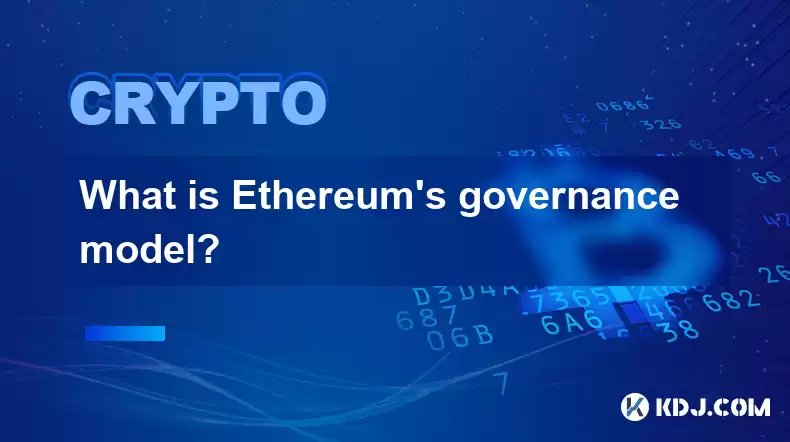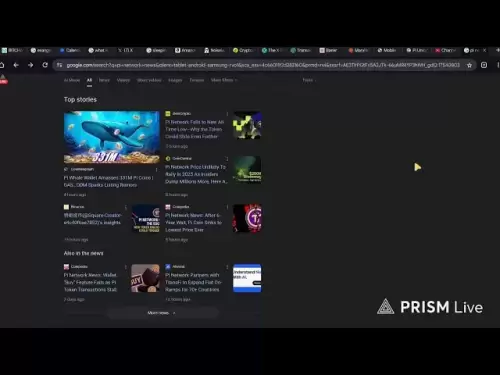-
 Bitcoin
Bitcoin $113900
-1.39% -
 Ethereum
Ethereum $3517
-4.15% -
 XRP
XRP $3.009
1.59% -
 Tether USDt
Tether USDt $0.9997
-0.04% -
 BNB
BNB $766.8
-1.41% -
 Solana
Solana $164.6
-2.38% -
 USDC
USDC $0.9998
-0.02% -
 TRON
TRON $0.3277
0.65% -
 Dogecoin
Dogecoin $0.2023
-1.67% -
 Cardano
Cardano $0.7246
0.05% -
 Hyperliquid
Hyperliquid $38.27
-4.77% -
 Sui
Sui $3.528
-0.52% -
 Stellar
Stellar $0.3890
-0.73% -
 Chainlink
Chainlink $16.16
-2.69% -
 Bitcoin Cash
Bitcoin Cash $539.9
-4.38% -
 Hedera
Hedera $0.2425
-2.00% -
 Avalanche
Avalanche $21.71
-0.97% -
 Toncoin
Toncoin $3.662
5.73% -
 Ethena USDe
Ethena USDe $1.000
-0.02% -
 UNUS SED LEO
UNUS SED LEO $8.964
0.35% -
 Litecoin
Litecoin $107.7
2.33% -
 Shiba Inu
Shiba Inu $0.00001223
-0.40% -
 Polkadot
Polkadot $3.617
-0.97% -
 Uniswap
Uniswap $9.052
-2.49% -
 Monero
Monero $295.1
-3.79% -
 Dai
Dai $0.9999
0.00% -
 Bitget Token
Bitget Token $4.315
-1.85% -
 Pepe
Pepe $0.00001060
0.11% -
 Cronos
Cronos $0.1342
-2.72% -
 Aave
Aave $256.0
-0.87%
What is Ethereum's governance model?
Ethereum's governance is evolving from a developer-centric model to a decentralized system, utilizing EIPs and DAOs for community input, though challenges in balancing expertise and fair representation persist.
Mar 19, 2025 at 02:25 am

Key Points:
- Ethereum's governance is a complex, evolving system, currently transitioning from a largely developer-centric model to a more decentralized, community-driven one.
- Early governance relied heavily on the Ethereum Foundation and core developers.
- EIP (Ethereum Improvement Proposal) process is the primary mechanism for proposing and implementing changes.
- The rise of decentralized autonomous organizations (DAOs) and community involvement are shaping future governance.
- Significant challenges remain, including balancing developer expertise with community input and ensuring fair representation across diverse stakeholder groups.
What is Ethereum's governance model?
Ethereum's governance model isn't a simple, singular entity. It's a dynamic process undergoing constant evolution, moving from a centralized structure to a more decentralized one. Initially, governance decisions were largely concentrated within the Ethereum Foundation and a small group of core developers. These individuals possessed significant influence over the direction and development of the platform. This centralized approach, while effective in the early stages, faced criticism as the network grew and diversified.
The primary mechanism for proposing and implementing changes to the Ethereum protocol is the Ethereum Improvement Proposal (EIP) process. An EIP is a formal document outlining a proposed change, which is then subject to community review and discussion. The process involves various stages of review and feedback, allowing developers, researchers, and community members to contribute their expertise and opinions. While the EIP process represents a significant step toward decentralization, the final decision on whether to implement a proposal often rests with the core developers.
This reliance on core developers, while arguably necessary for maintaining technical integrity, raises concerns about potential centralization and the potential for bias. Therefore, alternative governance models are being explored to foster a more inclusive and decentralized decision-making process. The community's role is increasingly important, even though the final decision-making power isn't fully decentralized yet.
The emergence of decentralized autonomous organizations (DAOs) is playing a significant role in reshaping Ethereum's governance landscape. DAOs are autonomous organizations governed by smart contracts, enabling community members to participate directly in decision-making through token-based voting. Several DAOs are now involved in various aspects of Ethereum's ecosystem, experimenting with different governance mechanisms and contributing to the ongoing evolution of the system.
However, the transition to a fully decentralized governance model presents considerable challenges. One major hurdle is balancing the technical expertise of core developers with the broader perspectives of the community. Finding effective ways to incorporate diverse opinions and ensure fair representation across different stakeholder groups—miners, developers, users, and investors—remains a significant area of ongoing work.
The scale of the Ethereum community is another factor complicating governance. The sheer number of participants makes reaching consensus on complex technical issues a daunting task. Effective communication, transparent decision-making processes, and mechanisms for resolving disagreements are critical to the success of any decentralized governance system. Discussions about improved voting mechanisms, delegation models, and quadratic voting are ongoing within the Ethereum community. These mechanisms aim to address the challenges posed by large-scale participation and ensure that the voices of all stakeholders are heard and considered.
Ethereum's governance continues to evolve as the network matures. The ongoing development and implementation of various governance mechanisms reflect the commitment to building a more decentralized and inclusive ecosystem. While the path towards complete decentralization is still underway, the ongoing experiments and community discussions highlight the dynamic and adaptive nature of Ethereum's governance model.
The complexity of the Ethereum ecosystem, involving diverse stakeholders with differing priorities, necessitates a nuanced approach to governance. The balance between technical expertise and community participation remains a central challenge. The ongoing debate about the best governance mechanisms underscores the ongoing evolution and experimentation within the Ethereum community.
The long-term vision for Ethereum governance involves a robust and transparent system that fairly represents the interests of all stakeholders. The current focus is on developing and testing various mechanisms, learning from past experiences, and continuously adapting to the ever-changing landscape of the cryptocurrency world. The success of this transition will significantly impact the future of Ethereum and the broader decentralized finance (DeFi) ecosystem.
Frequently Asked Questions:
Q: Who makes decisions in Ethereum's governance?
A: Currently, Ethereum's governance is a blend of core developers, the Ethereum Foundation, and the community. The EIP process allows for community input, but ultimate decision-making power often rests with core developers. DAOs are playing an increasingly important role.
Q: How can I participate in Ethereum governance?
A: You can participate by actively engaging in the EIP process, contributing to discussions on forums and social media, participating in DAOs, and supporting initiatives that promote decentralized governance.
Q: What are the challenges facing Ethereum's governance?
A: Balancing technical expertise with community input, ensuring fair representation of diverse stakeholders, and achieving consensus among a large and diverse community are key challenges. Scalability and the complexities of large-scale voting are also significant.
Q: What is an EIP (Ethereum Improvement Proposal)?
A: An EIP is a formal document proposing changes to the Ethereum protocol. They undergo community review and discussion before potential implementation.
Q: What role do DAOs play in Ethereum's governance?
A: DAOs are autonomous organizations governed by smart contracts, allowing community members to directly participate in decision-making through token-based voting. Their role is growing, but they are still part of a larger, evolving system.
Q: Is Ethereum's governance fully decentralized?
A: No, Ethereum's governance is not yet fully decentralized. It's in a transition phase, moving from a more centralized model toward a decentralized one, but significant challenges remain.
Disclaimer:info@kdj.com
The information provided is not trading advice. kdj.com does not assume any responsibility for any investments made based on the information provided in this article. Cryptocurrencies are highly volatile and it is highly recommended that you invest with caution after thorough research!
If you believe that the content used on this website infringes your copyright, please contact us immediately (info@kdj.com) and we will delete it promptly.
- DeFi Token Summer Gains: Is Mutuum Finance the Real Deal?
- 2025-08-02 18:30:12
- Bitcoin, Realized Price, and the Top: Are We There Yet?
- 2025-08-02 18:30:12
- Phishing, Wallets, and Stolen Funds: Staying Safe in the Wild West of Crypto
- 2025-08-02 16:30:12
- Rare Coin Alert: Is That 50p in Your Pocket Worth £10,000?
- 2025-08-02 16:30:12
- Arbitrum (ARB) Price Prediction: Oversold Signal or Breakout Imminent?
- 2025-08-02 16:55:36
- Arbitrum (ARB): Navigating Price Dips, PayPal Perks, and the Road Ahead
- 2025-08-02 17:00:12
Related knowledge

What is Chainlink (LINK)?
Jul 22,2025 at 02:14am
Understanding Chainlink (LINK): The Decentralized Oracle NetworkChainlink is a decentralized oracle network designed to bridge the gap between blockch...

What is Avalanche (AVAX)?
Jul 22,2025 at 08:35am
What is Avalanche (AVAX)?Avalanche (AVAX) is a decentralized, open-source blockchain platform designed to support high-performance decentralized appli...

What is Polkadot (DOT)?
Jul 19,2025 at 06:35pm
Understanding the Basics of Polkadot (DOT)Polkadot (DOT) is a multi-chain network protocol designed to enable different blockchains to transfer messag...

What is Litecoin (LTC)?
Jul 23,2025 at 11:35am
Overview of Litecoin (LTC)Litecoin (LTC) is a peer-to-peer cryptocurrency that was created in 2011 by Charlie Lee, a former Google engineer. It is oft...

What is Monero (XMR)?
Jul 21,2025 at 10:07am
What is Monero (XMR)?Monero (XMR) is a decentralized cryptocurrency designed to provide enhanced privacy and anonymity for its users. Unlike Bitcoin a...

How to add indicators to Ethereum chart on TradingView?
Jul 19,2025 at 07:15am
What Is an Ethereum Chart on TradingView?The Ethereum chart on TradingView is a visual representation of the price movement of Ethereum (ETH) over a s...

What is Chainlink (LINK)?
Jul 22,2025 at 02:14am
Understanding Chainlink (LINK): The Decentralized Oracle NetworkChainlink is a decentralized oracle network designed to bridge the gap between blockch...

What is Avalanche (AVAX)?
Jul 22,2025 at 08:35am
What is Avalanche (AVAX)?Avalanche (AVAX) is a decentralized, open-source blockchain platform designed to support high-performance decentralized appli...

What is Polkadot (DOT)?
Jul 19,2025 at 06:35pm
Understanding the Basics of Polkadot (DOT)Polkadot (DOT) is a multi-chain network protocol designed to enable different blockchains to transfer messag...

What is Litecoin (LTC)?
Jul 23,2025 at 11:35am
Overview of Litecoin (LTC)Litecoin (LTC) is a peer-to-peer cryptocurrency that was created in 2011 by Charlie Lee, a former Google engineer. It is oft...

What is Monero (XMR)?
Jul 21,2025 at 10:07am
What is Monero (XMR)?Monero (XMR) is a decentralized cryptocurrency designed to provide enhanced privacy and anonymity for its users. Unlike Bitcoin a...

How to add indicators to Ethereum chart on TradingView?
Jul 19,2025 at 07:15am
What Is an Ethereum Chart on TradingView?The Ethereum chart on TradingView is a visual representation of the price movement of Ethereum (ETH) over a s...
See all articles

























































































